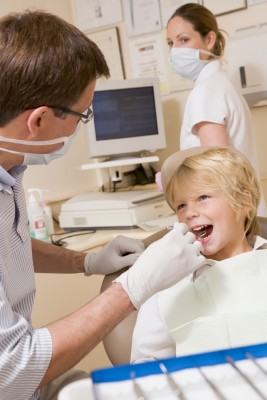Dental Surgery Anaesthetic Could Harm Children’s Teeth

Findings from a recent study suggest that using local anaesthetic during dental surgery could affect children’s tooth development. The research comes at a time when an increasing number of children are undergoing dental surgery due to conditions such as tooth decay.
Led by Bing Hu at Plymouth University Peninsula Schools of Medicine and Dentistry, the study involved researchers from Switzerland and China and has found that local anaesthetics used in dental clinics could affect the production of cells in the teeth. This is the first time evidence suggesting a link between local anaesthetic and tooth development has been discovered.
The researchers said that compared to other clinical areas, dental treatment uses local anaesthetic on a frequent basis. Although a maximum dosage for different local anaesthetics has been established, the side effects on dental tissue have not been fully investigated until now.
The results showed that the longer the patient was exposed to high concentrations of local anaesthetic, the more harmful it was. This is because it interfered with the function of mitochondria and induced autophagy, a cell death mechanism. The team accepted the need to carry out further investigations and Hu said they do not want the findings to cause unnecessary alarm to parents. However, in time they do expect to improve the clinical guidelines through studies to lessen local anaesthetic dosages.
Hu added that the results of the study highlight the need for parents to help their children avoid the need to have dental surgery in the first place. This can be done by paying attention to good oral hygiene and diet, as well as visiting the dentist every six months.
The study can be found in Cell Death Discovery.
Join this Discussion










